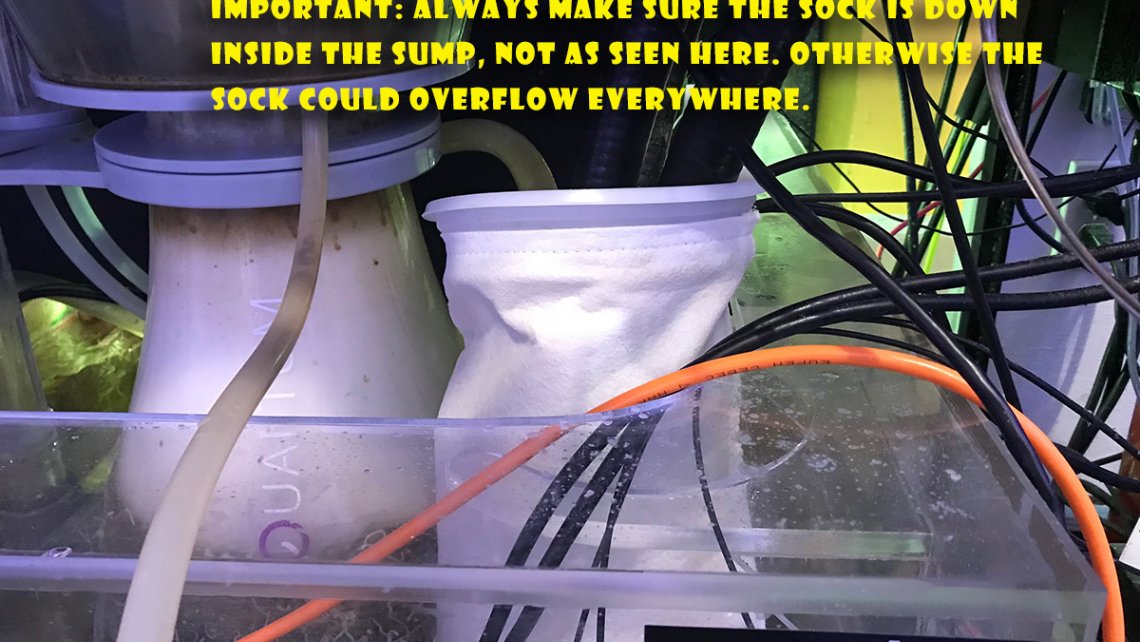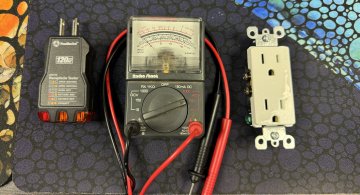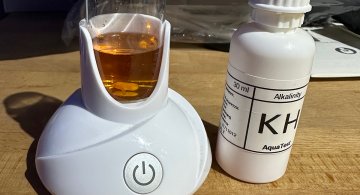How I clean filter socks
The one task I truly hate is cleaning filter socks. When I built my new sump for the 400g, I included a filter sock hanger and purchased four socks to rotate through as needed. These are the large 7" filter socks, not the smaller 4" type. I use a 10 micron sock when I treat the system with Phosphate Rx.
As they get dirty, I pull them out of the sump and place them in a container near the back door, and usually the next day they are put outside to be cleaned later. Well, I had one out there. A few weeks later I had another dirty sock sitting outside on my deck, a constant reminder they needed to be cleaned. About a week ago, I was kicking up quite a bit of detritus while working in the tank and ran another sock that got dirty as well. Two days later, it also was put outside.
Now that I had a small collection of brown nasty socks to clean, I had no desire to stand out in the Texas heat (107° F) heat to blast them clean with a garden hose. It can take 5 or 6 minutes per sock to clean them, and even then they tend to look tan and dingy.
Another thing on my backporch are my former RO/DI reservoirs. These are sold as wrapping paper containers, but I used to use them to top off my tanks over the years. Each one of these can hold up to 10g of water. Grabbing a bottle of bleach from the utility room as well as a bottle of Prime for afterwards, I got started.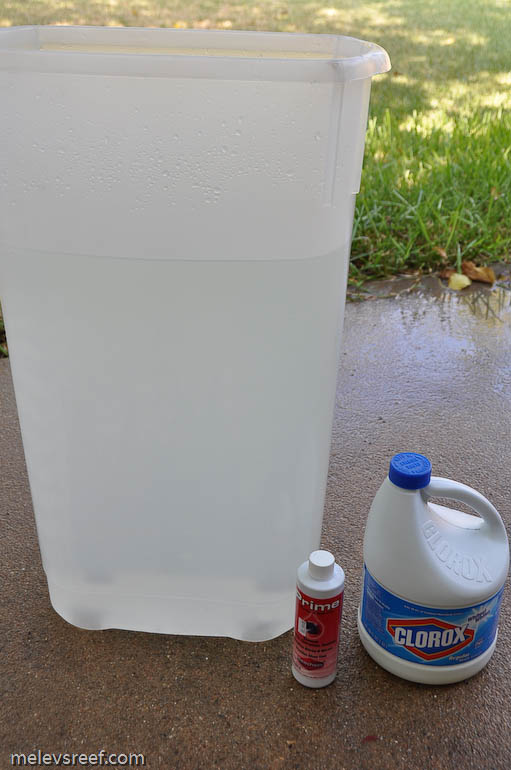
I filled up the container with about 7 gallons of water, and poured in about 1 cup of bleach. All three socks were then immersed in the solution and left to soak for about 30 minutes. I think 10 minutes is really plenty, but I had other things to do simultaneously, so these soaked a little longer.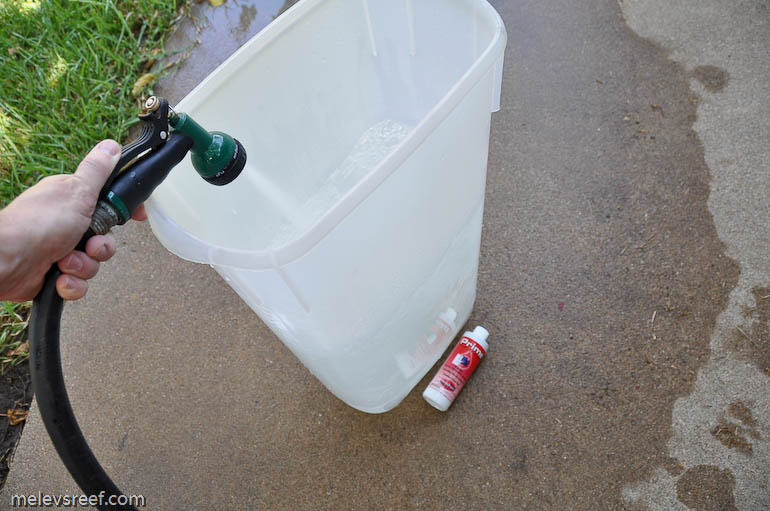
When I checked on them, they were better but still stained. What I did was invert each one, turning them inside out and resoaked them by plunging them into the bleach solution repeatedly.
Next, the sock was placed on the concrete and I set the garden hose sprayer to jet-mode and blasted away the brown. Working my way from the O-ring to the tip of the sock, I forced the brown out. I flipped it over and did the same. Then I turned it right-side out, and repeated the process for both sides. They were nice and clean, but smelled of bleach.
I dumped out the bleach solution and rinsed the container well, wiping down the sides to remove any trace left within. Then the container was refilled with about 5 or 6 gallons of water. I poured in 3 capfuls of Prime (way more than the normal strength since that would treat 150g usually), then repeatedly dunked the socks in the dechlorinated solution for about 60 seconds. 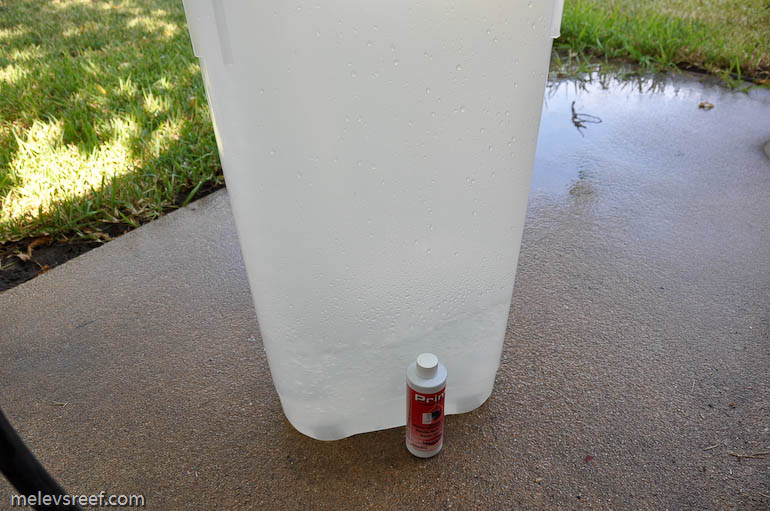
I left these to soak for about 15 minutes. This is a very important step, to assure the socks are safe for aquarium use again.
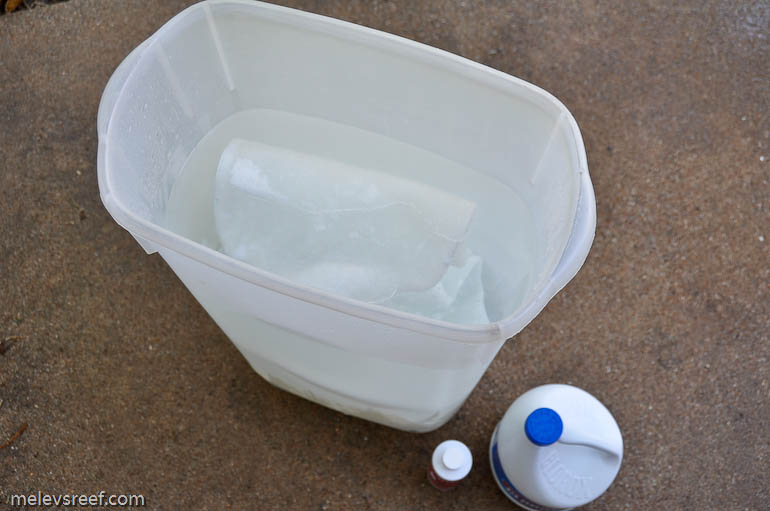
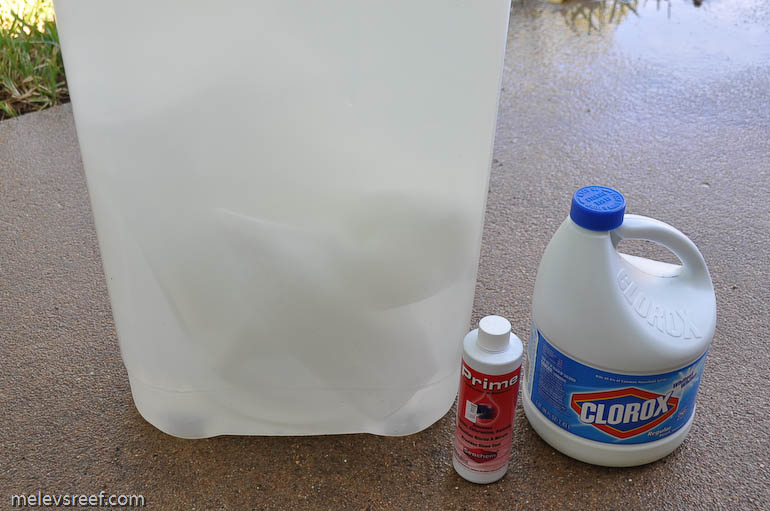
Finally, they were pulled from the water and allowed to air dry outside. No trace of bleach smell, I have three socks ready for whenever I feel like using them again. Letting them air dry outdoors helps assure no chlorine is left behind. Think hours, not minutes. If you don't use Prime, make sure the socks air dry for 24 hours for any traces of chlorine to evaporate away.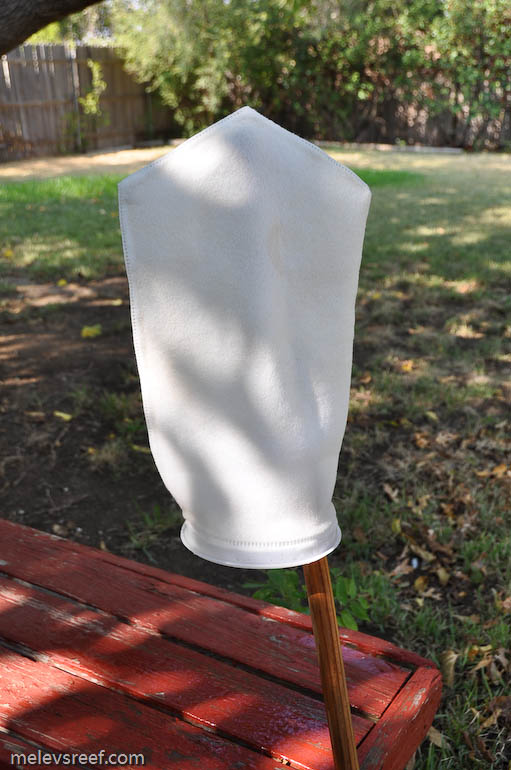
Btw, I want to thank Jonathan (Plantguy) for his great suggestion to use a broom handle to help turn the socks inside out. Once you start to push the base of the sock through its opening, you can press downward on the plastic O-ring and let the broom's handle press the sock upward and through.
I hope this helps some of you that wondered about the process. It's not fun at all, but it does make those socks look brand new. The LFS owner by my house hates cleaning socks, and decided to only use them one time. As soon as it is dirty and overflowing, he tosses it out and inserts a new one. Trust me, that thought doesn't sound all that bad to me.
